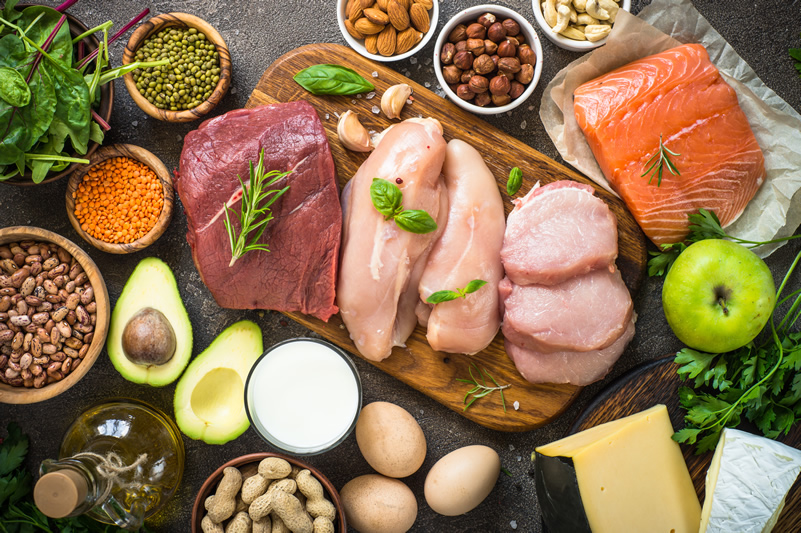News

Nutrition for Teenagers and Exams
The teenage years are hard enough, with ever changing hormone levels and the day to day pressures they face, but on top of this they have exams! During this period of stress and strain, children often manifest different types of eating behaviours. Some may skip meals or eat less /wrong food, others may eat more, rather binge on junk food. Of course you know your children better than anyone and what will or will not work for them, but I wanted to share with you some nutritional ideas to support them (and you!) during this very stressful time!
Nutrition – Why?
The gut and the brain are intrinsically linked; everything we eat or drink can influence our brain, either positively or negatively. Our digestive system is responsible for not only providing the body and the brain with key nutrients from food and drink, but also key hormones that enter the brain, or are produced in the brain, that have an impact on our memory and cognitive function.
We need antioxidants, good fats, and certain vitamins and minerals to maintain healthy brain and memory function. By feeding the gut we are also feeding the mind.
General Points
Don’t skip meals. Eat regularly – Why? - skipping meals may play havoc with blood sugar balance leading to energy and mood highs and lows.
Protein – palm sized piece at every meal, especially breakfast. Protein contains the amino acid tryptophan
- turkey
- chicken
- salmon
- edamame beans
- cottage cheese
Why? - Tryptophan helps manufacture the neurotransmitter serotonin. Serotonin supports good mood. Other tryptophan foods Sweet Potato, Oats and Legumes.
Keep blood sugar in balance - Why?- to prevent mood and energy dips – swap high GL foods (basically any white carbs) to low GL (brown rice, brown pasta, slow releasing carbs like sweet potato, lentils).
Include Omega-3 rich foods - Why?- have been found to promote electrical signalling between nerve cells, allowing the brain to communicate quickly and easily and may help improve mental concentration and memory.
- oily fish (salmon, mackerel, sardines)
- olive oil
- avocado
- nuts (walnuts, almonds)
- Seeds (chia, flaxseed – add to smoothies)
Stay hydrated - Why? -Water allows many of the chemical reactions in our bodies to take place, so the speed at which our brains work and can process information can be affected if we become dehydrated. Not a fan of water – flavour it – berries, lemon, mint, cucumber. Aim for 2 l a day.
Healthy Snacks - Very easy to reach for chocolate or biscuits, but the temporary high you'll get from the sugar will be quickly followed by a crash in blood sugar levels causing fatigue. Try hummus with oatcakes, apple with cashew butter, small handful of nuts, half an avocado.
Get enough sleep - Lack of sleep will make revising much more difficult, and you'll be much more likely to reach for a sugary fix to get through the learning lulls. Warm milk and herbal teas before bed have a sedative effect. Ditch your phone, tablet or laptop at least 30 minutes before bed. This will help to stop the release of dopamine (an excitable hormone, keeps you awake) and let your body ready for sleep.
Increase B vitamins foods. B12, B6 and folate (B9) may have memory-boosting benefits, as well as vitamin K of which some of the highest concentrations have been found in the brain, making it a key nutrient for brain function and memory.
- Dark green leafy vegetables are a good source of folate, B6, K and a source of magnesium all essential or healthy brain function.
- B12 - Good quality meat, eggs, salmon, trout, seaweed. If your child is a vegetarian, a B12 supplement may be needed if not getting enough.
Eat the rainbow - red, orange, and green vegetables, including peppers, carrots, and broccoli, contain a variety of beneficial plant compounds, including carotenoid pigments, that have been shown to benefit mental performance.
Support your immune system – Why? – Stress from exams may weaken your immune system leading to colds, infections etc. Lots of vegetables and some fruit. Or during this time take a good multi vitamin to support the immune system.
Other foods to include that have been linked to brain health.
Berries are rich in a variety of compounds that may help promote academic performance and protect the health of your brain e.g. blueberries, strawberries, and blackberries, are especially high in flavonoid compounds called anthocyanins which are believed to improve mental performance by increasing blood flow to your brain, protecting against inflammation and cellular processes involved in learning and memory.
Citrus fruits like oranges and grapefruit are rich in flavonoids, including hesperidin, naringin, quercetin, and rutin. These compounds may have the ability to promote learning and memory, as well as protect nerve cells from injury.
Nuts are packed with nutrients that are essential for brain health, omega 3, protein and vitamin E and zinc.
Eggs are particularly rich in nutrients that are necessary for brain function, Selenium which is involved in coordination, memory, cognition, and motor performance.
- Choline is needed for brain development and the production of the neurotransmitter acetylcholine, which is necessary for memory storage and muscle function
- Vitamin B12 also plays important roles in neurological health, and having low levels of this vitamin impairs brain function
- Lutein, a carotenoid pigment that has been associated with improved visual and mental function. However, you need to eat whole eggs not just egg whites to reap their potential brain-function-promoting benefits.
